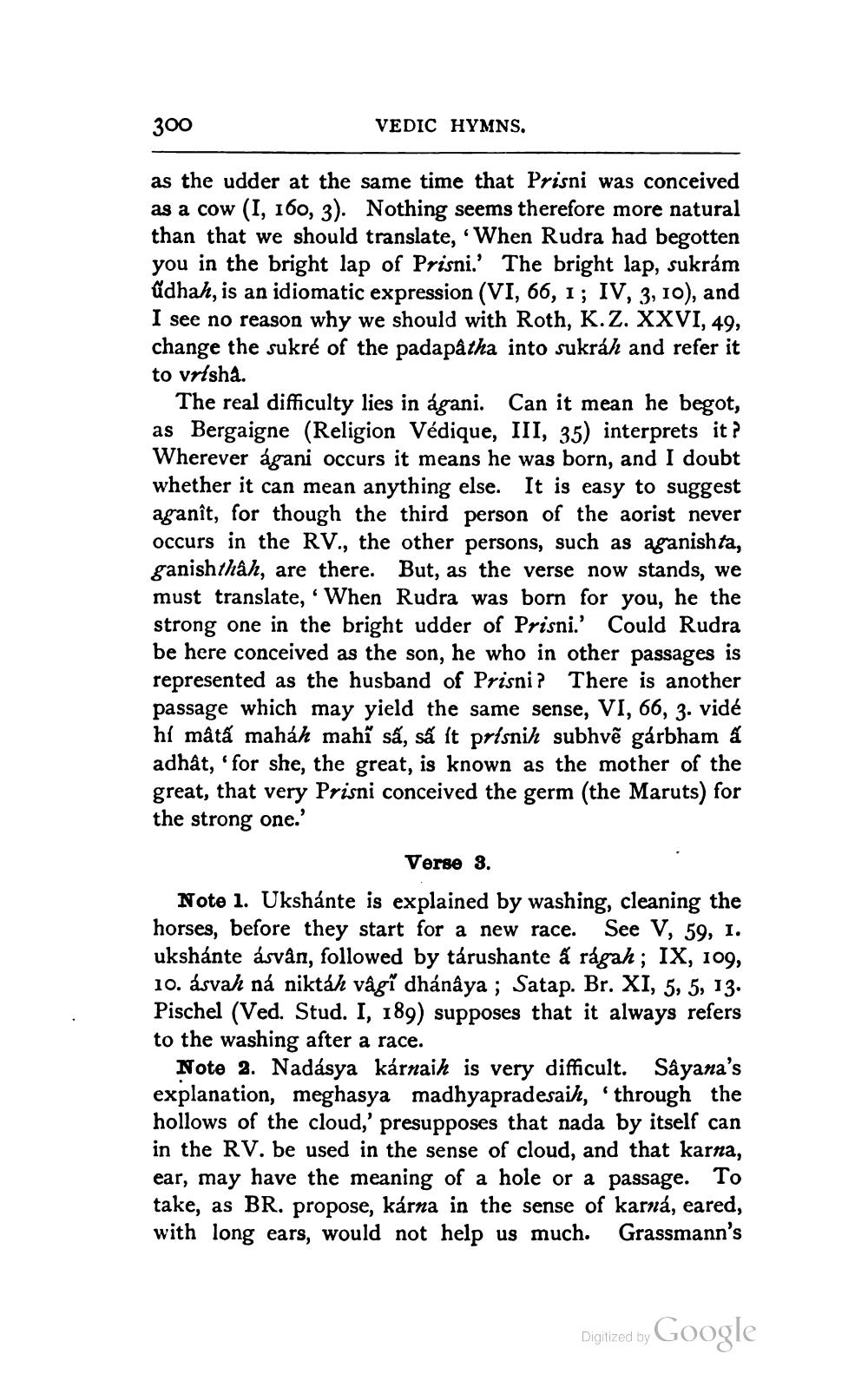________________
300
VEDIC HYMNS.
as the udder at the same time that Prisni was conceived as a cow (I, 160, 3). Nothing seems therefore more natural than that we should translate, When Rudra had begotten you in the bright lap of Prisni.' The bright lap, sukrám ūdhah, is an idiomatic expression (VI, 66, 1; IV, 3, 10), and I see no reason why we should with Roth, K.Z. XXVI, 49, change the sukré of the padapatha into sukráh and refer it to vrisha.
The real difficulty lies in ágani. Can it mean he begot, as Bergaigne (Religion Védique, III, 35) interprets it? Wherever ágani occurs it means he was born, and I doubt whether it can mean anything else. It is easy to suggest aganît, for though the third person of the aorist never occurs in the RV., the other persons, such as aganishta, ganishthåh, are there. But, as the verse now stands, we must translate, 'When Rudra was born for you, he the strong one in the bright udder of Prisni.' Could Rudra be here conceived as the son, he who in other passages is represented as the husband of Prisni? There is another passage which may yield the same sense, VI, 66, 3. vidé hí mâtá mahah mahĩ sá, sá It prisnih subhvē garbham a adhât, 'for she, the great, is known as the mother of the great, that very Prisni conceived the germ (the Maruts) for the strong one.'
Verse 3. Note 1. Ukshánte is explained by washing, cleaning the horses, before they start for a new race. See V, 59, I. ukshảnte ásván, followed by tárushante a rágah; IX, 109, 10. ásvah ná niktáh vågî dhánâya ; Satap. Br. XI, 5, 5, 13. Pischel (Ved. Stud. I, 189) supposes that it always refers to the washing after a race.
Note . Nadásya kárnaih is very difficult. Sâyana's explanation, meghasya madhyapradesaih, 'through the hollows of the cloud,' presupposes that nada by itself can in the RV. be used in the sense of cloud, and that karna, ear, may have the meaning of a hole or a passage. To take, as BR. propose, kárna in the sense of karná, eared, with long ears, would not help us much. Grassmann's
Digitized by
Digilzed by Google




